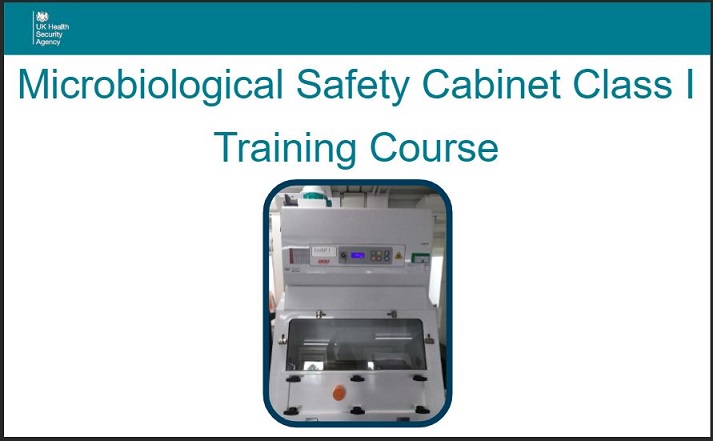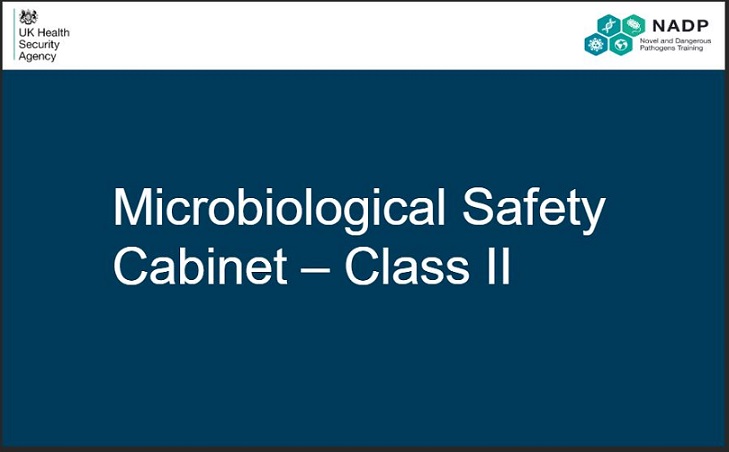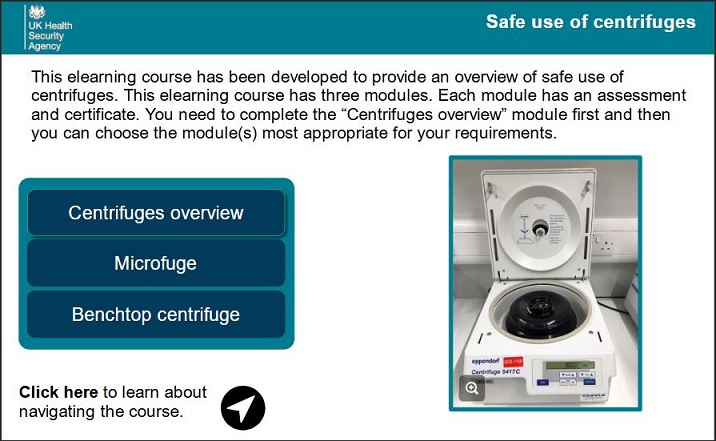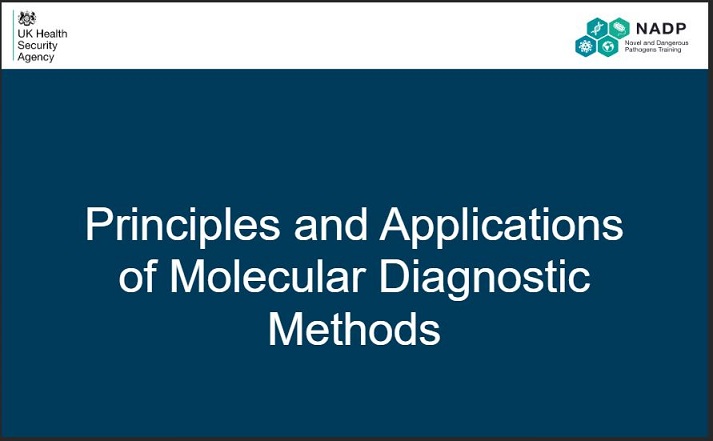E-learning Courses
We can now offer access to e-learning packages, including introductions to Class I Microbiological Safety Cabinets, Class II Microbiological Safety Cabinets, Class II Biological Safety Cabinets, Safe Use of Centrifuges and Principles and Applications of Molecular Diagnostic Methods. Course content has been carefully designed by the NADP Training team with input from experts in the field of Biosafety. It has been designed to be interactive to help the delegate retain information and engage with the content to make the course interesting as well as informative. Courses includes assessment and a certificate of completion, which can be used to provide evidence of your continued professional development. As these courses are completed remotely, they are available continually, once purchased.
As these courses are completed remotely they are available continually.
IT requirements: IT requirements: Access to Microsoft Edge, Chrome or Internet Explorer are recommended. Safari and Brave may also be supported too.
Cost:The interactive e-learning course allows the delegate to complete the course in their own time, at their own place of work; please see below for our pricing structure. Please contact us at nadp.training@ukhsa.gov.uk if you require more information.
Class I Microbiological Safety Cabinets
This e-learning course is designed for scientists who will be working with Class I Microbiological Safety Cabinets (MSCs) or refresher training for those currently working with Class I MSCs.
The aim of the e-learning course is to give the delegate a review of the function and safe working practices when using a Class I MSC.

On completing the course delegates will be able to explain and describe:
• The internal and external features of a Class I MSC • The functions of the cabinet, including how the filters are used to remove aerosols from within the cabinet and their efficiency
• The airflows, including the effects on the airflows caused by other people working in the laboratory, operator movements and equipment used in and near the cabinet
• Best practice to be used in the Class I MSC, including pre-use checks, good microbiological practice and what Personal Protective Equipment to use while working in the cabinet
• Which equipment and consumables are most appropriate to be used in the cabinet
• How to disinfect the cabinet and items coming out of the cabinet to keep all staff safe from laboratory acquired infection
• How to react in an emergency, in case of a spill or power outage while working in the cabinet
The course does not remove the need for specific practical training on the techniques and specific laboratory practices required to work safely in your laboratory.
Class II Microbiological Safety Cabinets (UK) or Class II Biological Safety Cabinets (Rest of World)
This e-learning course is designed for scientists who will be working with Class II Microbiological Safety Cabinets (MSCs) or Class II Biological Safety Cabinets (BSCs); this may also be refresher training for those currently working with Class II MSCs/BSCs.
The aim of the e-learning course is to give the delegate a review of the function and safe working practices when using a Class II MSC/BSC.

- The internal and external features of a Class II MSC/BSC
- The functions of the cabinet, including how the filters are used to remove aerosols from within the cabinet and their efficiency
- The airflows, including the effects on the airflows caused by other people working in the laboratory, operator movements and equipment used in and near the cabinet
- Best practice to be used in the Class II MSC/BSC, including pre-use checks, good microbiological practice and what Personal Protective Equipment to use while working in the cabinet
- Which equipment and consumables are most appropriate to be used in the cabinet
- How to disinfect the cabinet and items coming out of the cabinet to keep all staff safe from laboratory acquired infection
- How to react in an emergency, in case of a spill or power outage while working in the cabinet
The course does not remove the need for specific practical training on the techniques and specific laboratory practices required to work safely in your laboratory.
Safe Use of Centrifuges
This e-learning course is designed for scientists who will be working with centrifuges.

- What is centrifugation
- The different types of centrifuges
- The risks and maintenance involved in using a centrifuge
- Documentation and training
- Pre-use checks
The course does not remove the need for specific practical training on the techniques and specific laboratory practices required to work safely in your laboratory.
Principles and Applications of Molecular Diagnostic Methods
This e-learning course is an introduction for scientists in the principles and applications of molecular diagnostic methods.

- What a nucleic acid is
- The method(s) of nucleic extraction
- PCR and Quantitative PCR
- Primer and probe design
- Results, reporting and quality assurance
The course does not remove the need for specific practical training on the techniques and specific laboratory practices required to work safely in your laboratory.